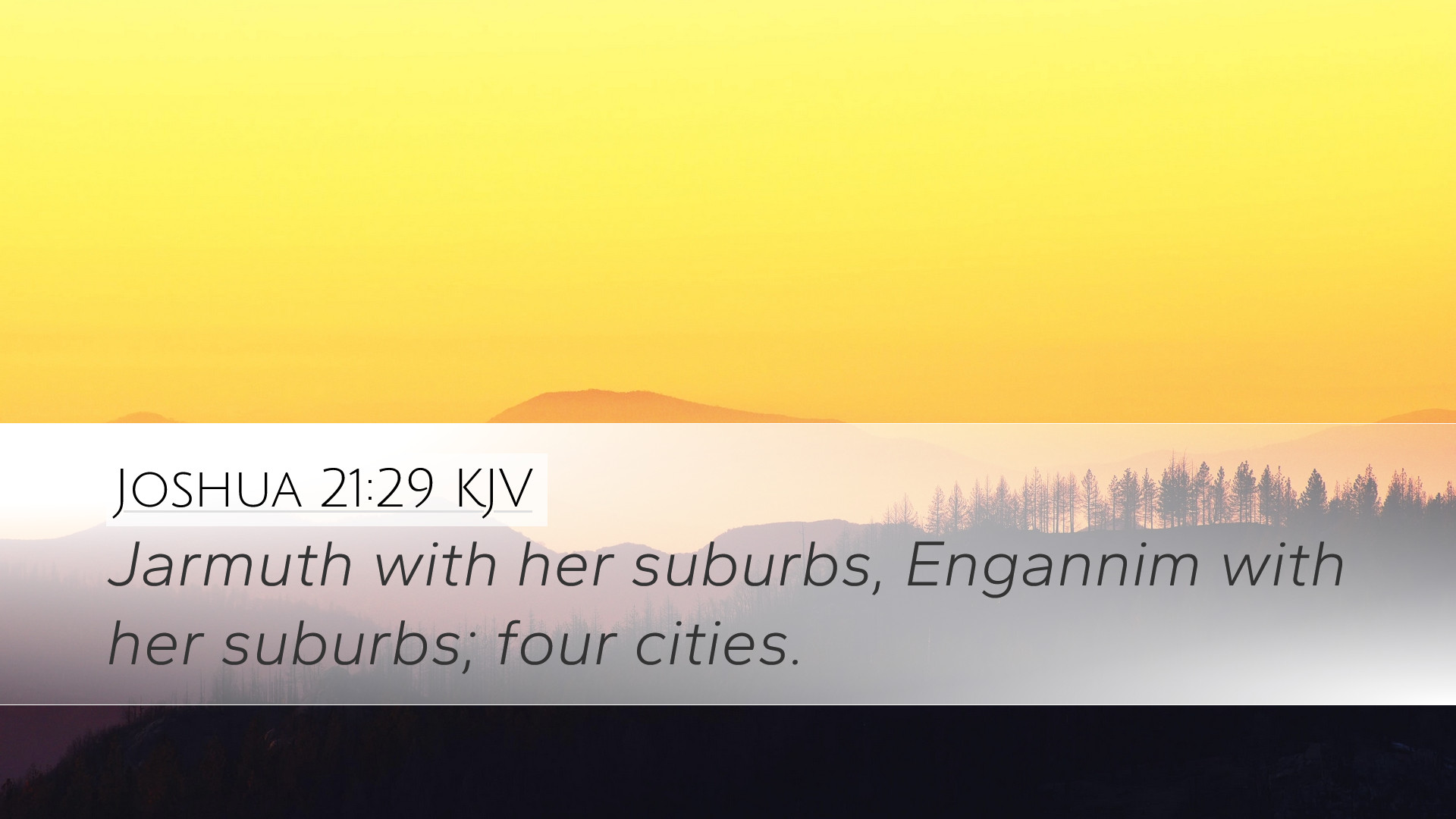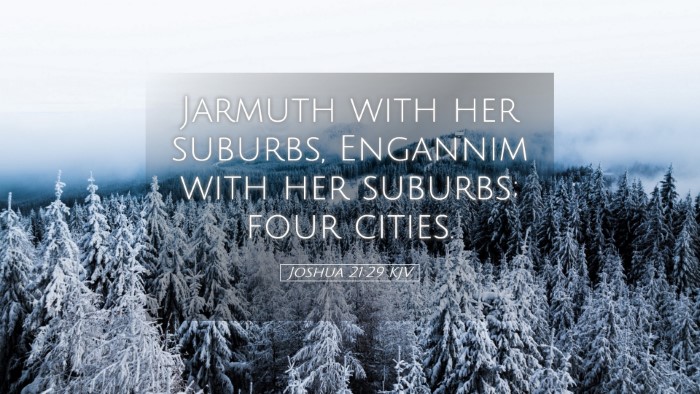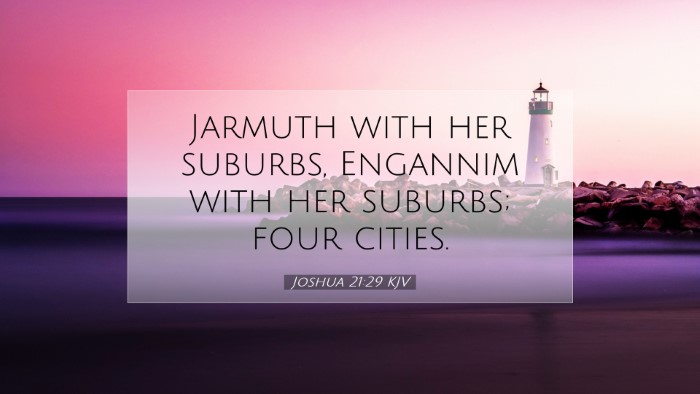Commentary on Joshua 21:29
Verse: "And from the tribe of Benjamin, Gibeon with her suburbs, Geba with her suburbs," (Joshua 21:29, KJV)
Introduction
This verse falls within the larger context of the allocation of cities to the Levitical priests, as outlined in Joshua 21. It indicates how the inheritance of the Levites was distributed among the tribes of Israel. The mention of Gibeon and Geba exemplifies the importance of these cities and the roles they played within the tribal landscape of ancient Israel.
Historical Context
The land of Canaan was divided among the twelve tribes of Israel, and the Levites received cities rather than a tribal inheritance of land. This unique provision fulfilled the Levitical roles under the Mosaic Law, allowing them to serve as priests and function in religious capacities throughout the nation. Gibeon, a significant city, and Geba, often considered less prominent, reflect the varied responsibilities assigned to divine service.
Insights from Matthew Henry
Matthew Henry highlights the importance of Gibeon as it relates to its earlier role as a city of refuge and its connection to the Gibeonites' covenant with Israel (Joshua 9). He emphasizes the principle of divine providence in providing for the Levites, who were to be set apart for spiritual leadership and worship. He notes the significance of the suburbs being mentioned, illustrating the idea that these cities were not just urban centers but also included surrounding lands that supported the Levite communities.
Contributions from Albert Barnes
Albert Barnes elaborates on the nature of the cities granted to the Levites. He emphasizes that Gibeon was strategically located, serving both as a political and religious center. The city’s positioning amongst other tribal lands allowed the Levites to effectively minister across the territory. He also points out that Geba is mentioned here to showcase the Levites' accessibility to different parts of Israel and their role in bridging the spiritual life of the people with their living conditions.
Adam Clarke's Analysis
Adam Clarke notes that Gibeon and Geba were chosen not just for their geography but also for their historical significance. Gibeon had previously gained a reputation due to its cunning alliance with the Israelites. Clarke posits that the allotment of these cities highlights God's care for the priestly class and His commitment to maintaining worship throughout the land. He interprets the suburbs as serving dual purposes: as protection for the Levites and as spaces for communal living and worship.
Spiritual Applications
- Recognition of Levitical Service: The allocation of cities signifies the importance of dedicating spaces to serve God. Pastors may draw parallels in their own ministries, recognizing that churches and communities should be designed to foster spiritual growth and service.
- Divine Provision: This scripture portrays God's provision for His people, reminding leaders and congregants alike of the need to trust in God's plans for sustainability in spiritual matters.
- The Importance of Community: The suburbs surrounding these cities reflect the need for community and companionship in faith, especially for those called to ministry and service. The mutual support structure within religious contexts is vital for strengthening faith.
Conclusion
In summary, Joshua 21:29 serves as more than a historical record; it imparts valuable lessons about divine provision, leadership, community, and the significance of dedicated places for serving God. Reflecting on the insights from Henry, Barnes, and Clarke can inspire modern-day pastors and theologians to consider how these principles apply within their lives and ministries.


